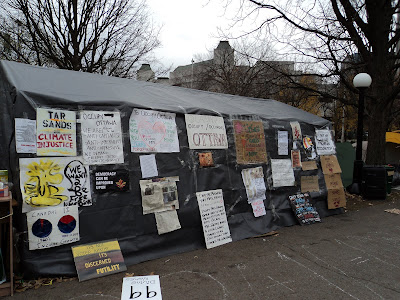
What do we do with this world that turns a blind eye to torture, that permits state sanctioned murder all in the name of greed, all in the name of consumerism?
I spent last weekend in Georgia at the annual SOA Watch, a huge vigil outside the gates of Fort Benning, home of the infamous School of the Americas (renamed WHINSEC in an effort to hide its evil reputation). The school trains Latin American and South American soldiers for the specific purpose of oppressing their own people. Why? To ease access to land and resources for American and Canadian corporations.
Graduates of this school have a nasty history. They are responsible for murders in their thousands. Their victims include Oscar Romero, Rutilio Grande, and the entire village of El Mozote in El Salvador. Their dead include infants only a few hours old, elders over 100 years old, and every age in between. They have killed women, men, missionaries, politicians, children, the educated, the illiterate and anyone, absolutely anyone who stands in the way of the corporate machine.
The weekend brings together torture survivors and peacemakers from all over the Americas. It includes workshops and prayer services, reminding us of the intimate link between faith and justice. It is a weekend of remembrance of the victims, and hope for the future.
The slow memorial procession on the last day testifies to the spirits of the victims who live on in the hearts of those who see something better than consumerism, something higher than greed, something more meaningful than war. As the name of each victim is read, the thousands who have come call out ‘Presente’ for they will always be present to us. And then slowly, one by one, a cross is placed in their name on the gates of the School. Once the gate is covered with crosses, it transforms from a place of hate to a place of hope.
For every name there is a cross. For every cross there is a resurrection. I am reminded that this is not the end. It is only the beginning.



